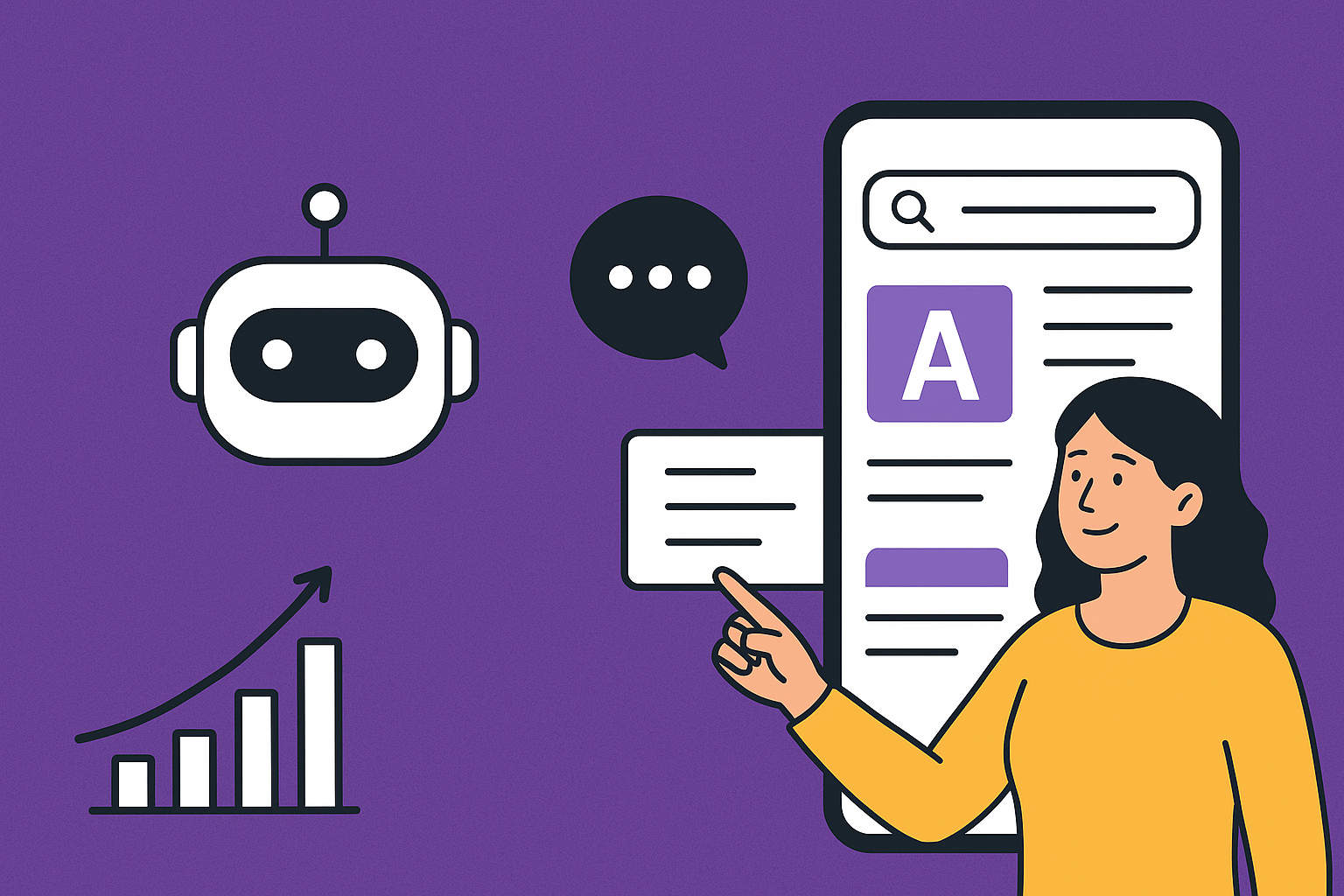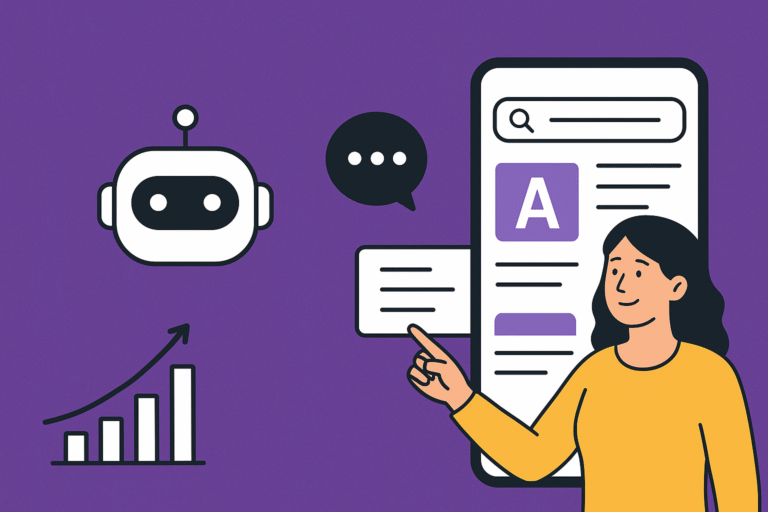Search engines are no longer what they used to be. Google’s blue links were once the holy grail of digital marketing, but today’s reality is far more complex. Generative AI, answer engines, and conversational search are reshaping how people discover information—and businesses need to adapt.
In this blog, we’ll dive deep into AI-driven optimization strategies—AEO (Answer Engine Optimization), GEO (Generative Engine Optimization), and AIO (Artificial Intelligence Optimization). You’ll see how they work, why they matter, and how real businesses are already leveraging them to stay ahead.
What Is Answer Engine Optimization (AEO)?
Traditionally, SEO meant optimizing content for search engines—ranking high on Google, Bing, or Yahoo. But as AI-powered assistants like ChatGPT, Google’s AI Overviews, Bing Copilot, and Perplexity AI dominate, the rules are changing.
Answer Engine Optimization (AEO) is about crafting content that AI systems can directly use in their responses. Instead of fighting for a click, you’re aiming for your content to be cited, quoted, or summarized as the answer.
Real-Life Example: Reddit’s Traffic Surge
When Google updated its search results in 2024 to feature more user-generated content, Reddit’s organic traffic jumped over 40%. Why? Because answer engines and AI models prefer authentic, conversational, and structured answers—exactly the type of content Reddit thrives on.
Another example comes from Quora. By building out structured Q&A content, Quora has become a major source cited by AI assistants. In fact, Perplexity AI and Bing Copilot often pull directly from Quora threads when users ask nuanced, conversational questions.
This shift shows us one clear truth: search is no longer about ranking high—it’s about being the best answer.
Generative Engine Optimization (GEO)
GEO takes AEO a step further. Instead of optimizing for how AI finds answers, it focuses on how AI generates them. Generative AI doesn’t just retrieve; it synthesizes.
If AEO is about getting quoted, GEO is about making sure your brand becomes the backbone of AI-generated responses.
Key Elements of GEO:
- Structured Data & Schema Markup → Helps AI parse information cleanly.
- Conversational Content → Content written in natural Q&A style is more likely to be pulled into generative summaries.
- Authority & Trust → AI systems prefer citing sources with high domain authority.
- Contextual Relevance → AI models weigh context heavily; being comprehensive boosts chances of citation.
Case Study: Perplexity AI and Publishers
Perplexity AI started experimenting with citing sources prominently in 2024. Websites with clear, authoritative, structured articles saw spikes in referral traffic because the AI not only summarized their content but linked back to the original.
One publisher, TechCrunch, reported noticeable referral growth after ensuring their articles were structured with FAQs, takeaways, and schema-rich metadata. AI systems found them easier to parse, making them a go-to source.
Another case is Wikipedia, which continues to dominate AI citations. Generative systems prefer Wikipedia because of its structure, reliability, and entity-based formatting. Businesses can learn from this by creating content that mirrors Wikipedia’s clarity and structure.
Artificial Intelligence Optimization (AIO)
While AEO and GEO focus on visibility within answer engines, AIO is about optimizing for AI itself—training your brand presence to be understood, cited, and integrated into AI-driven ecosystems.
How AIO Works:
- AI-Readable Branding: Ensure your brand is consistently represented across the web.
- Entity-Based SEO: Google and AI models think in entities (people, places, brands)—not just keywords.
- Data Transparency: Clear signals (reviews, Wikipedia pages, LinkedIn profiles) help AI engines verify your credibility.
- Omni-Platform Consistency: If your business appears on Google Business, LinkedIn, Crunchbase, and local directories, AI has more data to trust you.
Real-Life Example: Local Businesses in Voice Search
Local coffee shops that optimized their Google Business Profiles with updated menus, reviews, and schema data saw increased mentions on Alexa and Google Assistant. That’s AIO in practice—making your brand AI-ready.
Another example is Airbnb. The platform’s structured property listings (with reviews, pricing, maps, and host bios) are frequently cited by AI assistants. Airbnb’s dominance isn’t just SEO—it’s AIO at scale.
Why This Matters for Businesses
The future of SEO isn’t about where you rank, but whether AI trusts you enough to use your content.
Key Benefits:
- Increased Visibility Without Clicks: Even if users don’t visit your site, your brand still becomes the authority.
- AI Citations Build Trust: If ChatGPT cites your content, your credibility skyrockets.
- First-Mover Advantage: Most businesses haven’t even heard of AEO, GEO, or AIO yet—meaning early adopters win.
How to Implement AEO, GEO, and AIO Today
- Create Conversational Content → Write FAQs, Q&A blogs, and how-to guides.
- Leverage Schema Markup → Add structured data so AI can understand your content.
- Invest in Authority Signals → Guest posts, PR mentions, reviews, and Wikipedia entries.
- Think in Entities, Not Keywords → Make sure your brand, product, and people are clearly connected across the web.
- Experiment with AI Platforms → Test how ChatGPT, Perplexity, and Bing Copilot reference your content.
- Focus on Multimedia → AI increasingly uses video transcripts and audio sources—don’t ignore YouTube optimization.
- Prioritize Reviews & UGC → Encourage customer reviews, since AI values authentic voices.
The Human vs. AI Balance
One critical trend is the battle between human-generated content and AI spam. As AI-generated fluff floods the internet, businesses that prioritize human perspective, storytelling, and expertise stand out.
For example, a medical blog written by real doctors will always outperform a generic AI article in AI-powered search—because credibility, experience, and authority matter.
Google’s E-E-A-T (Experience, Expertise, Authority, Trustworthiness) framework ensures that human expertise continues to shine. Businesses must embrace real voices + AI structure for maximum impact.
Future Outlook: Quantum SEO and Beyond
While AEO, GEO, and AIO dominate today, there’s already chatter about Quantum SEO—leveraging quantum computing principles for faster, predictive optimization. It’s still in experimental stages, but companies like ThatWare are exploring how quantum-based algorithms could one day transform digital marketing.
This highlights a critical truth: SEO has never been static. From keyword stuffing in the 2000s, to backlinks in the 2010s, to E-E-A-T and Core Web Vitals in the 2020s—we’re now entering the AI-driven decade of search.
The Future: Beyond SEO, Into AEO
SEO is evolving into a multi-layered strategy where visibility is no longer limited to Google’s top 10 links. Brands that embrace AEO, GEO, and AIO will thrive in the new AI-first search economy.
The takeaway? Don’t just optimize for search engines. Optimize for answer engines, generative AI, and the entire AI ecosystem. If you become the trusted source AI cites, you don’t just win traffic—you win authority.
Pro Tip: Start running AI queries with your industry keywords and see which sources pop up. If your brand isn’t there—you’ve got work to do.
AI is rewriting the SEO rulebook. The businesses that win are those who don’t wait for the dust to settle but adapt now. By embracing AEO, GEO, and AIO, you’re not just keeping up—you’re building authority in the search landscape of the future.







